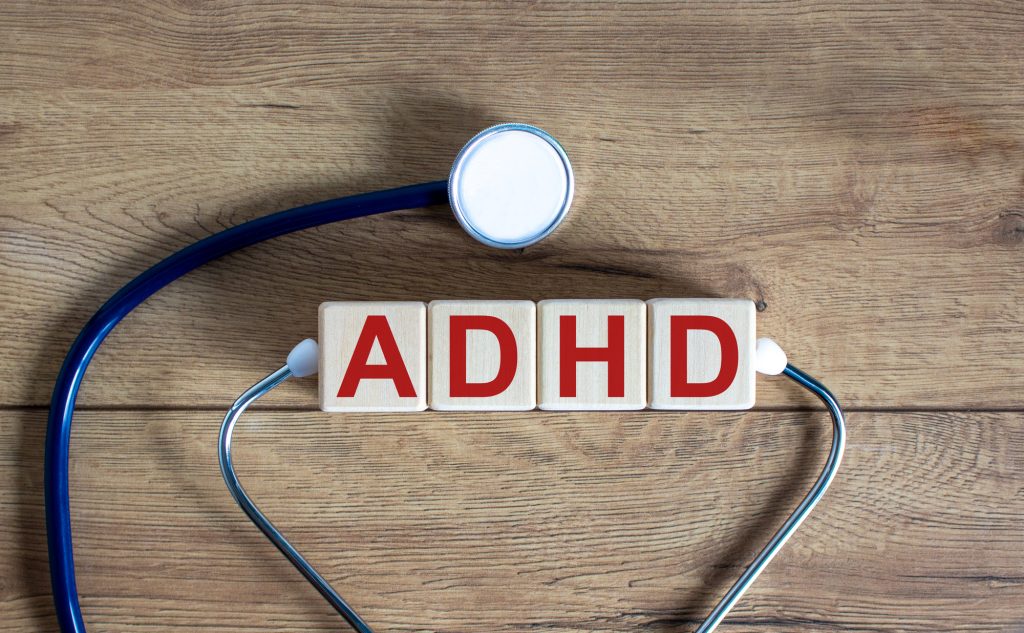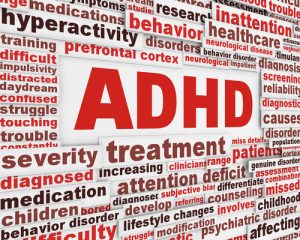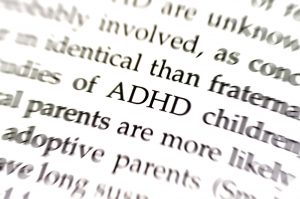 Written by Pat Baker.
Written by Pat Baker.
Attention-Deficit/Hyperactivity Disorder is often described by deficits in attention, impulsivity, and hyperactivity. However, emotional dysregulation is a significant yet frequently overlooked component of ADHD, particularly in adults. This aspect of ADHD can profoundly impact patients’ personal and professional lives. For healthcare professionals, a thorough understanding of the emotional dimensions of ADHD is essential for developing comprehensive treatment plans that address the full spectrum of symptoms.
The Emotional Roller Coaster of ADHD
Emotional dysregulation in adults with ADHD manifests as an inability to manage and respond appropriately to emotional stimuli. Patients may experience heightened emotional responses, with emotions that are intense and persist longer than those typically experienced by individuals without ADHD. This can result in frequent mood swings, irritability, and a pervasive sense of emotional overwhelm. Recognizing and understanding these emotional patterns is crucial for developing targeted therapeutic interventions.
Effective ADHD treatment, including both in-person and ADHD treatment online, can help stabilize these emotional fluctuations. Online treatment options offer accessible and flexible support, making it easier for patients to incorporate therapy into their busy lives. By combining medication management with behavioral therapies, patients can achieve better emotional control and improve their overall well-being.
The Science Behind ADHD and Emotions
Neuroimaging studies have demonstrated that emotional dysregulation in ADHD has a neurological foundation. Research published in The American Journal of Psychiatry reveals reduced activity in the prefrontal cortex—an area responsible for emotional regulation—in individuals with ADHD (Shaw et al., 2014). Concurrently, the limbic system, which governs emotional responses, tends to be hyperactive, leading to heightened emotional sensitivity. These neurobiological insights underscore the importance of integrating emotional regulation strategies into ADHD treatment plans.
Real-life Impacts of Emotional Dysregulation
The emotional aspects of ADHD can significantly affect various areas of a patient’s life:
- Work-Related Challenges: Emotional dysregulation can lead to significant difficulties in the workplace, including frustration, stress, and conflicts with colleagues. These challenges can impair job performance and increase the likelihood of job turnover. Addressing these emotional issues is vital for improving workplace functioning and overall job satisfaction.
- Personal Relationships: Intense emotional reactions can strain personal relationships, leading to frequent conflicts and misunderstandings. Sensitivity to criticism can further exacerbate these issues, making it difficult for patients to continue supportive and stable relationships. Effective management of emotional dysregulation is crucial for fostering healthier interpersonal dynamics.
- Chronic Stress and Anxiety: Persistent emotional dysregulation can contribute to chronic stress and anxiety, exacerbating the core symptoms of ADHD. Constant anxiety and stress can lead to a cycle of worsening emotional and ADHD symptoms, highlighting the need for comprehensive stress management strategies within the treatment plan.
Common Emotional Responses in Adults with ADHD
Several emotional responses are commonly observed in adults with ADHD, each presenting unique challenges and requiring specific management strategies:
- Impulsivity and Emotional Reactions: Impulsivity can lead to rapid, often inappropriate emotional responses, which patients may later regret. This impulsivity complicates emotional regulation and necessitates targeted interventions to help patients develop greater control over their responses.
- Sensitivity to Criticism: Many adults with ADHD exhibit heightened sensitivity to criticism, which can trigger intense emotional reactions and feelings of inadequacy. This sensitivity can hinder personal and professional development, making it important to address these issues within therapeutic settings.
- Emotional Overwhelm: The intensity of emotions experienced by individuals with ADHD can lead to feeling overwhelmed and out of control. This can result in avoidance behaviors and difficulties in managing daily tasks. Developing coping mechanisms to handle emotional overwhelm is a critical component of effective ADHD management.
Coping Strategies for Emotional Dysregulation
Effective management of emotional dysregulation involves a combination of behavioral strategies, therapeutic interventions, and, when appropriate, pharmacological treatments:
- Identifying Emotional Triggers: Helping patients recognize situations or stimuli that trigger strong emotional responses is essential for developing personalized coping strategies. This can involve the use of emotional tracking tools or journals to identify patterns and triggers.
- Mindfulness and Relaxation Techniques: Practices such as meditation and deep breathing exercises can aid in calming the mind and reducing emotional reactivity. These techniques promote greater awareness and acceptance of emotions, which can enhance emotional regulation.
- Cognitive Behavioral Therapy (CBT): CBT has proven effective in helping individuals with ADHD identify and change negative thought patterns that contribute to emotional dysregulation. By restructuring these thought patterns, patients can develop healthier emotional responses and improve overall emotional stability.
- Practical Tips for Daily Management: Encouraging patients to establish routines, set realistic goals, and use organizational tools can help manage daily challenges and reduce feelings of overwhelm. Practical strategies such as breaking tasks into smaller, manageable steps can also be beneficial.
- Medication and Professional Help: Medications such as stimulants and non-stimulants, combined with therapy, can be effective in managing both the emotional and core symptoms of ADHD. Healthcare professionals should create treatment plans for a patient’s specific needs and monitor their progress regularly.
Exploring the Link Between ADHD and Other Mental Health Conditions
ADHD often coexists with other mental health concerns, complicating the emotional landscape and requiring a nuanced approach to treatment:
- Common Comorbidities: Conditions such as anxiety, depression, and bipolar disorder frequently co-occur with ADHD. Up to 50% of adults with ADHD also have anxiety symptoms according to the Journal of Clinical Psychiatry (Kessler et al., 2006). Understanding the interplay between these conditions is essential for developing comprehensive treatment plans.
- Interaction with ADHD: These comorbid conditions can exacerbate emotional dysregulation and complicate the management of ADHD symptoms. For instance, anxiety can heighten feelings of restlessness and impulsivity, while depression can contribute to emotional instability. Addressing all coexisting conditions is critical for effective treatment.
Latest Research and Advancements in Understanding ADHD and Emotions
Healthcare professionals should keep up to date on the latest treatments to provide the most effective care for patients with ADHD:
- Recent Studies and Findings: A 2020 study published in JAMA Psychiatry highlighted that emotional dysregulation in ADHD can be significantly reduced through a combination of medication and behavioral therapy (Mick et al., 2020). These findings reinforce the importance of an integrated treatment approach.
- Emerging Therapies and Treatments: New treatments, such as neurofeedback and advanced behavioral interventions, are showing promise in managing ADHD-related emotional dysregulation. These innovative therapies focus on training the brain to improve attention and emotional control, offering hope for improved outcomes.
Conclusion
For healthcare professionals, understanding and managing the emotional aspects of ADHD in adults is essential for providing comprehensive and effective care. By recognizing the challenges associated with emotional dysregulation, exploring effective coping strategies, and staying informed about the latest research, healthcare providers can support adults with ADHD in navigating their emotional landscapes successfully. This holistic approach to treatment can have better overall outcomes and an improved quality of life for patients with ADHD.
Author Bio:
Pat Baker has a lifelong struggle with mental health and emotional responses, and writes for online mental health treatment providers.
References
Shaw, P., Stringaris, A., Nigg, J., & Leibenluft, E. (2014). Emotion dysregulation in attention deficit hyperactivity disorder. The American Journal of Psychiatry, 171(3), 276-293.
Kessler, R. C., Adler, L., Barkley, R., Biederman, J., Conners, C. K., Demler, O., … & Zaslavsky, A. M. (2006). The prevalence and correlates of adult ADHD in the United States: Results from the National Comorbidity Survey Replication. The Journal of Clinical Psychiatry, 67(7), 1003-1011.
Mick, E., Faraone, S. V., Spencer, T., Zhang-James, Y., & Biederman, J. (2020). Can ADHD be diagnosed in adults? JAMA Psychiatry, 77(9), 927-928.
Please also review AIHCP’s Attention Deficit Consulting Certification program and see if it meets your academic and professional goals. These programs are online and independent study and open to qualified professionals seeking a four year certification.



























